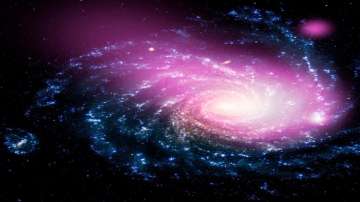Chinese scientists have proposed a space project to survey the sky through a space-borne telescope to hunt for habitable Earth-like planets outside the solar system, about 32 light-years from Earth, the official media reported on Thursday. The project, named Closeby Habitable Exoplanet Survey (CHES), if carried out, will be the first space mission specially designed to search for habitable terrestrial planets around nearby Sun-like stars, the report said.
The exploration of habitable planets outside the solar system is one of the key frontiers of fundamental research in astronomy. The CHES will observe about 100 Sun-like stars 32 light-years away on a long-term survey, and will hopefully discover roughly 50 Earth-like planets or super-Earths, planets that are up to about 10 times the mass of Earth, state-run China Global Television Network (CGTN) reported.
The CHES will offer crucial clues to the issues such as "Are we alone in the universe?" and "How can planets become the cradle of life?" according to Ji Jianghui, a research professor from the Purple Mountain Observatory of the Chinese Academy of Sciences, who is the principal investigator of the CHES mission.
Ji said more than 5,000 exoplanets have been discovered and confirmed so far, including about 50 Earth-like planets in the habitable zone, but most of them are hundreds of light-years away from Earth. "The discovery of the nearby habitable worlds will be a great breakthrough for humankind, and will also help humans visit those Earth twins and expand our living space in the future," Ji added.
ALSO READ | EXPLAINER: What's behind difficult Taiwan-China relations?
ALSO READ | Omicron makes China’s ‘zero-COVID’ policy unsustainable, says WHO chief Tedros Adhanom
Latest World News

